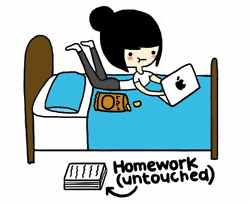SPECULATION
& DEDUCTION (unit 3A)
There are many ways of saying that
something will probably or possibly happen in English.
Probable
bound to =
certain: "They are bound to succeed!"
sure to = certain: "He is sure to win the
championship."
likely to = probable: "We are likely to win
the contract."
likely/ unlikely:
"An election is likely next year." “ That’s unlikely to happen”
will definitely happen:
"There will definitely be a storm later."
will probably happen:
"They will probably take on more staff."
Be bound + to-infinitive is used to refer to future events which
are certain or very likely to happen:
Kevin is stuck in a traffic jam, so he is bound to be late.
Be likely + to-infinitive and it is likely + that-clause
are used for future events which are probably going to happen:
Smokers are more likely to develop lung cancer compared to non-smokers.
It is
likely that he will win the race.
The
modal verbs can, could, may, might, should, will, would and must are used to show that we believe something is certain, probable or
possible:
Possibility:
We
use the modals could, might and may to show that something is possible in the
future, but not certain:
They might come later. (= Perhaps/Maybe they will come
later.)
They may
come by car. (= Perhaps/Maybe they will come
by car.)
If we don’t hurry we could
be late. (= Perhaps/Maybe we will be late)
We
use could
have, might have and may have to show that something was possible now or at some time in the past:
It’s
ten o’clock. They might
have arrived now.
They could
have arrived hours ago.
We
use the modal can to make general statements about what is possible:
It can be very cold in winter. (= It is sometimes very cold in
winter)
You can easily lose your way in the dark. (= People often lose their way in
the dark)
We
use the modal could as the past tense of can:
It could be very cold in winter. (= Sometimes it was very cold in
winter.)
You could
lose your way in the dark. (= People often lost their way in
the dark)
Impossibility:
We
use the negative can’t or cannot to show that something is impossible:
That can’t be true.
You cannot
be serious.
We
use couldn’t/could not to talk about the past:
We
knew it could
not be true.
He was obviously joking. He could not be serious.
Probability:
We
use the modal must to show we are sure something to be true and we have reasons
for our belief:
It’s
getting dark. It must
be quite late.
You haven’t eaten all day. You must be hungry.
We
use must
have for the past:
They
hadn’t eaten all day. They must have been hungry.
You look happy. You must
have heard the good news.
We
use the modal should to suggest that something is true or will be true in
the future, and to show you have reasons for your suggestion:
Ask
Miranda. She should
know.
It's nearly six o'clock. They should arrive soon.
We
use should
have to talk about the past:
It's
nearly eleven o'clock. They should have arrived by now.
_______________________________________
- Did you get stuck with GET and its uses? Then GO HERE and practise further.
- For the use of " THE SAKE OF..." GO HERE!







